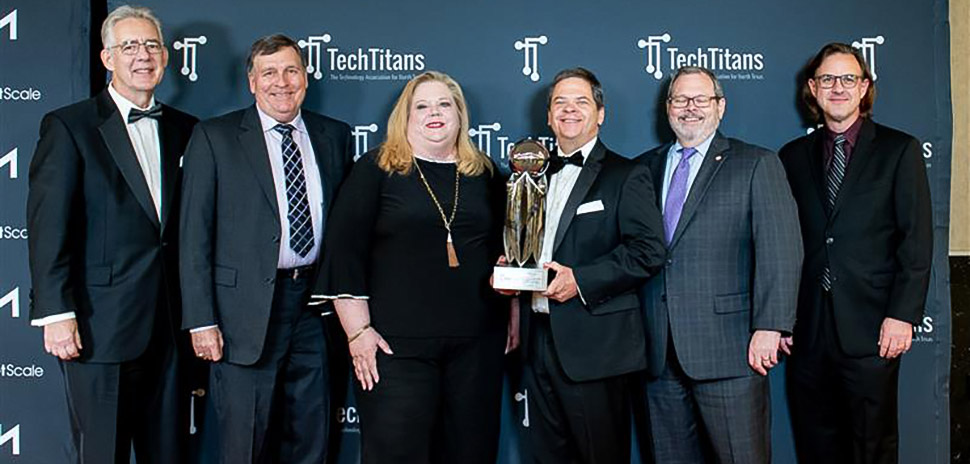Dallas-based biotech startup Taysha Gene Therapies and UT Southwestern Medical Center have launched a new innovation fund dedicated to discovering and developing novel gene therapy candidates and improving next-gen technologies that could be used to treat monogenic diseases of the central nervous system.
The fund will exclusively support the discovery efforts of a team of researchers from the UTSW Gene Therapy Program, the company told us via email. The amount in the fund—managed by reps from both Taysha and UTSW—is undisclosed.
Fitting with the new fund, Taysha is a patient-centric gene therapy company that focuses on the treatment of monogenic diseases of the central nervous system (CNS) in both rare and large patient populations. The team ultimately aims to end severe, life-threatening CNS diseases that are caused by variation in a single gene, also known as monogenic. Their solution is to develop and commercialize a pipeline of extensive, AAV (adeno-associated viruses) gene therapies.
Taysha initially emerged from stealth last April with a $30 million Series A funding round and a strategic partnership with UT Southwestern. The company launched with a pipeline of 15 adeno-associated virus gene therapy programs, along with options to four others. In total, Taysha collected some $125 million in Series A and B funding in 2020, followed by a September IPO. Taysha is registered under the ticker NASDAQ:TSHA.
Now, Taysha expects to file four IND (Investigational New Drug) applications in 2021. A big part of achieving that feat comes from the partnership with UTSW.
The majority of Taysha’s product candidates originated from UTSW, but all are being developed to treat monogenic CNS diseases. For instance: TSHA-101 is being developed for the treatment of GM2 gangliosidosis, where there are no approved treatments.
Taysha’s team, which has proven experience in gene therapy drug development and commercialization, works with the UT Southwestern Gene Therapy Program, led by Steven Gray, director of the Viral Vector Core and Assistant Professor in the Department of Pediatrics, and Berge Minassian, division chief of Child Neurology.
The UTSW Gene Therapy Program supports Taysha’s wide range of preclinical and clinical development programs.
Under the partnership, UT Southwestern, which has developed a “state-of-the-art viral vector manufacturing facility,” runs discovery and preclinical research, as well as lead studies, provide manufacturing, and execute natural history studies.
Together, the two leverage Taysha’s fully integrated platform, which it calls “an engine for potential new cures,” to meet the goal of dramatically improving patients’ lives.
“Our relationship with the UTSW gene therapy program has produced over 18 novel product candidates, including TSHA-101 in GM2 gangliosidosis and TSHA-118 in CLN1, which are currently in clinical development,” RA Session II, the president, founder and CEO of Taysha, said in a statement. “We are pleased by the significant progress our partnership has achieved and are excited to build on that foundation and momentum to bring additional compelling innovation to the clinic.”
The new innovation fund is an expansion of that partnership.
UTSW’s discovery efforts to facilitate the translation of promising discoveries from bench to clinic will be supported, per a news release, and Taysha will get an exclusive option on new programs and intellectual property that is associated with, or arising from, the research conducted under the agreement.
Researchers from UTSW’s Gene Therapy Program will explore gene therapy targets in new disease areas, and will work to create gene therapy tech platforms that address current limitations.
“We are excited to expand our alliance with UTSW to accelerate the discovery and development of novel gene therapy candidates and next-generation technologies for patients with monogenic CNS diseases,” Session said. “We believe that the combination of UTSW’s translational research expertise in gene therapy and strong track record of innovation and our experience in drug development and GMP manufacturing will create opportunities to reach more patients with unmet medical needs.”
The story was updated with additional information on Taysha’s September 2020 IPO on Feb. 10, 2020 at 5:30 p.m.
![]()
Get on the list.
Dallas Innovates, every day.
Sign up to keep your eye on what’s new and next in Dallas-Fort Worth, every day.





































































